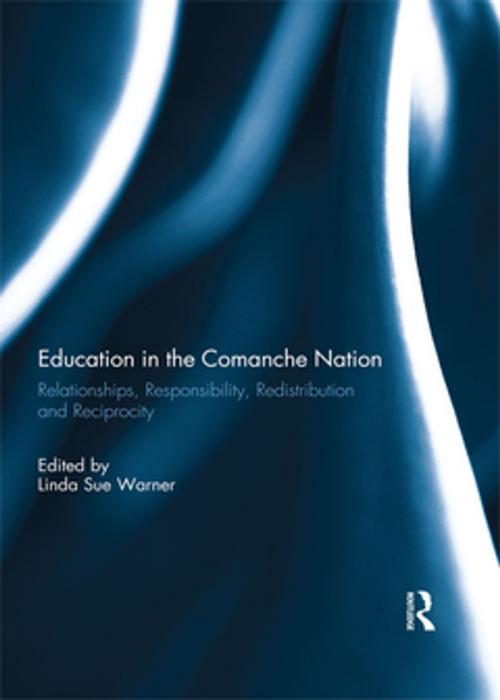Education in the Comanche Nation
Relationships, Responsibility, Redistribution and Reciprocity
Nonfiction, Reference & Language, Education & Teaching| Author: | ISBN: | 9781317623311 | |
| Publisher: | Taylor and Francis | Publication: | February 5, 2016 |
| Imprint: | Routledge | Language: | English |
| Author: | |
| ISBN: | 9781317623311 |
| Publisher: | Taylor and Francis |
| Publication: | February 5, 2016 |
| Imprint: | Routledge |
| Language: | English |
This collection delivers an altogether unique perspective of research on American Indian/Alaska Native education policy and practice by creating a cultural lens, framed as tribal core values, to allow readers to rethink research on and about tribal populations. The policies that affect American Indian education often create a disconnect between an general educational hegemonic mandate of "one size fits all" and the deeply held cultural beliefs of American Indian/Alaska Native peoples. This book provides current thinking about both policies and processes that support native ways of knowing and how tribal incorporation of values support the resiliency that characterizes the United States’ first peoples. It considers a range of issues, including the relationship between Native American fathers and daughter, how Habermasian theory applies to Native American education policy and the experiences of Indian college students in predominately white institutions.
This book was originally published as a special issue of the International Journal of Qualitative Studies in Education.
This collection delivers an altogether unique perspective of research on American Indian/Alaska Native education policy and practice by creating a cultural lens, framed as tribal core values, to allow readers to rethink research on and about tribal populations. The policies that affect American Indian education often create a disconnect between an general educational hegemonic mandate of "one size fits all" and the deeply held cultural beliefs of American Indian/Alaska Native peoples. This book provides current thinking about both policies and processes that support native ways of knowing and how tribal incorporation of values support the resiliency that characterizes the United States’ first peoples. It considers a range of issues, including the relationship between Native American fathers and daughter, how Habermasian theory applies to Native American education policy and the experiences of Indian college students in predominately white institutions.
This book was originally published as a special issue of the International Journal of Qualitative Studies in Education.















